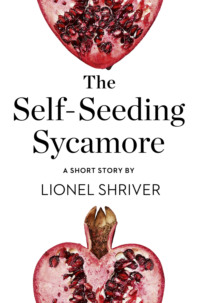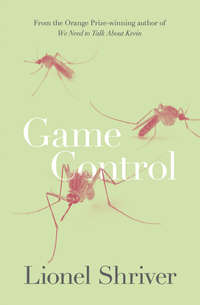
Полная версия
Big Brother
Why would you want to sell millions of people on the illusion that they knew you, when they didn’t? I adored the fortification of proper strangers, whose blithe disinterest constituted a form of protection, a soft, oblivious aspic of apathy in which I could hide, like a square of fruit cocktail in strawberry Jell-O. How raw and exposing instead to be surrounded by strangers who want something from you, who believe they not only know but own you. I couldn’t imagine why you’d want droves of nitpickers to comment on your change of hairstyle, to regard everything from your peculiar furniture to the cellulite in your thighs as their business. For me, nothing was more precious than the ability to walk down the street unrecognized, or to take a seat in a restaurant and be left in peace.
But then, the joys of obscurity were my own discovery. Like everyone else in L.A., I was raised to regard being a nobody as a death. It may have been easier for me to reject that proposition because from the age of eight I grew up with celebrity at ready hand—or celebrity by association, the worst kind: unearned, cheap.
I found being admired myself unpleasant, and far preferred looking up to someone else. While I’d looked up to numerous teachers as a child, that comfortable hierarchy—in which the weaker party isn’t humiliated by the submission—is decreasingly on offer in adulthood. Grown-ups are more likely to despise than adulate their bosses, and in my own self-employment I could only despise or adulate myself. Long gone were the days American electorates looked up to a president like JFK; we were more apt to look askance at politicians. Celebrities splashed across magazines excited less adoration than envy; in an era of the famous-for-being-famous, the assumption ran that with the right PR rep this talentless no-account with all the goodies could be you. I used to look up to my father, and the fact that I did no longer pained me more than I admitted. I loved Fletcher’s graceful, sinuous furniture, but I didn’t look up to him. In fact, maybe if you look up to your spouse there’s something wrong.
I looked up to Edison. I knew little about jazz, but anyone who tripped out that many complicated notes without creating sheer cacophony was accomplished. I was never sure the level of recognition Edison had achieved in his rarified circles, but he had played with musicians whom folks in the know seemed to recognize, and I’d memorized their names in order to rattle off an impressive list to skeptics like Fletcher: Stan Getz, Joe Henderson, Jeff Ballard, Kurt Rosenwinkel, Paul Motian, Evan Parker, and even, once, Harry Connick, Jr. Edison Appaloosa was listed on dozens of CDs, a complete set of which enjoyed pride of place beside our stereo—even if we didn’t play them much, since none of us was big on jazz. I was in awe of his travels, his far-flung colleagues, his fearless public performances, and his sexy ex-wife—the vast canvas on which he’d painted his life. He may often have made me feel mousey, tongue-tied, not quite myself. I didn’t mind so long as someone in our family was dashing and flashy, gunning a harvester through the hay of the daily grind. Fine, he smoked too much, and kept insensible hours. Fletcher and I were up to our eyeballs in sensible, and a splash of anarchy was overdue.
Still, I pulled into short-term parking with a pang of misgiving. Edison himself wasn’t the beanpole he’d been as a track star in high school, and though he hadn’t kept up with the running he’d always been one of those men (they simply don’t make women like this) whose naturally athletic build sustained all manner of drinking and sloth. My brother was sure to ride me mercilessly for looking so shopping-mall and middle-aged.
Cedar Rapids Airport was small and user-friendly, its beige décor a picture frame for whatever more colorful passengers deplaned there. At the end of September, baggage claim was deserted, and I was relieved to have arrived before Edison’s flight landed. If people divide into those who worry about having to wait and those who worry about keeping others waiting, I fell firmly into the second camp.
Soon the connecting flight from Detroit was posted on Carousel 3, and I texted Fletcher that the plane was on time. While passengers threaded from the arrivals hall and clumped around the belt, I loitered from a step back. In front of me, a lanky man in neat khaki slacks—with a tennis racket slung over a shoulder and the remnants of a summer tan—was conversing with a slender brunette. The young woman must have saved her apple from the in-flight snack; she polished it against her cashmere sweater as if the fruit would grant three wishes.
“I can’t believe they gave him a middle seat,” said the tennis player.
“I was grateful when you offered to switch,” said the woman. “I was totally smashed against the window. But letting him have the aisle didn’t help you much.”
“They should really charge double, and leave the next seat empty.”
“But can you picture the ruckus, if on top of having to put your hemorrhoid cream in a clear plastic bag you had to stand on a scale? There’d be an insurrection.”
“Yeah, not socially practical. But I lost my armrest, and the guy was half in my lap. And you saw how hard it was for the attendant to get the cart past him.”
“What gets me,” the woman grumbled as luggage emerged on the belt, “is we all get the same baggage allowances. Our friend in aisle seventeen was packing a quarter ton in carry-on. I swear, next time they try to charge me extra because one pair of shoes has pushed me over twenty-six pounds, I’m going to offer to eat them.”
The man chuckled. Meanwhile, no sign of Edison. I hoped he hadn’t missed the plane.
“I gather they’ve had to recalculate the number of ‘average’ passengers older planes can take,” said the man. “But you’re right: normal people are subsidizing—”
“What ‘normal people’?” the woman muttered. “Look around you.”
Searching again for Edison, I scanned their fellow passengers, to whose geometry I’d become so inured that at first I missed the snotty woman’s inference. Earlier generations built on acute angles, today’s Americans were constructed with perpendiculars, and the posteriors lining the baggage belt were uniformly square. Given the perplexing popularity of “low rise” jeans, tight waistbands crossed the hips at their widest point and bit under the gut, which the odd short-cut top exposed in all its convex glory. I avoided the unfortunate fashion, but with those twenty extra pounds I didn’t stand out from the crowd myself. So I felt personally insulted when the sportsman muttered to his companion, “Welcome to Iowa.”
“Oh, that’s mine.” The woman slipped her Granny Smith, now very shiny, into her handbag before leaning close to her acquaintance. “By the way, on the plane with that guy, what I really couldn’t stand? Was the smell.”
I was relieved the woman’s suitcase had arrived, since the pariah whom she and her seatmate had so cruelly disparaged must have been the very large gentleman whom two flight attendants were rolling into baggage claim in an extra-wide wheelchair. A curious glance in the heavy passenger’s direction pierced me with a sympathy so searing I might have been shot. Looking at that man was like falling into a hole, and I had to look away because it was rude to stare, and even ruder to cry.
Конец ознакомительного фрагмента.
Текст предоставлен ООО «ЛитРес».
Прочитайте эту книгу целиком, купив полную легальную версию на ЛитРес.
Безопасно оплатить книгу можно банковской картой Visa, MasterCard, Maestro, со счета мобильного телефона, с платежного терминала, в салоне МТС или Связной, через PayPal, WebMoney, Яндекс.Деньги, QIWI Кошелек, бонусными картами или другим удобным Вам способом.








